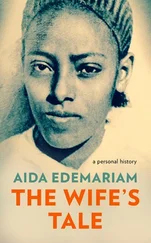Marquess Wellesley held his dignity in high esteem. He was conscious of having merited the gratitude of both the British government and the Court of Directors of the East India Company. He was, after all, in the process of consolidating the empire of which Lord Clive had laid the foundation; and he much resented criticisms of his autocratic manner and the exercise of his patronage. Certainly he lived in a grand style with a splendidly uniformed bodyguard which he increased from a mere fifty men in his predecessor’s time to four hundred, together with a band. He occupied a magnificent house, ‘the Kedleston of Bengal’; he entertained on a princely scale. But it was all for the glory of the Company and the empire in the East; and it irked him beyond measure to have to listen to guarded complaints from cheeseparing, pettifogging nonentities in the Company’s offices in Leadenhall Street who had no conception of the workings of the oriental mind. He dismissed their rumblings of discontent and, so far as he could, he determined to carry on as he thought best or he would resign. His brother Arthur supported him. ‘I hope you do not propose to stay in India longer than the end of this year,’ he wrote when their relations had been more or less restored to their former amity. ‘Such masters do not deserve your services.’ 16
8 Assaye
1802 – 5
‘I never saw a man so cool and collected as he was.’
EARLY IN 1802 the Governor-General authorized an expedition, to be led by his brother, against a troublesome rajah in Bullum, north-west of Seringapatam. The short campaign, which ended with the hanging of the rajah, gave General Wellesley further experience of forest warfare which was to stand him in good stead in the days to come. For the operations had not long been over when he was called upon to take to the field again. This time he was to operate in the territories of the Marathas north of Mysore. Here the Peshwah, the titular chief of the Maratha confederacy who had accepted the position of a prince under British protection, had been driven from Poona by Jaswant Rāo Holkar, an illegitimate son of TukojI Holkar, Maharajah of Indore. General Wellesley’s prescribed task was to restore the Peshwah to his throne in Poona and to defeat or scatter Holkar’s army.
As the author of a recent ‘Memorandum upon Operations in the Mahratta Territory’ and as an officer with experience of that country in the pursuit of Dhoondiah Waugh, he felt himself as well qualified as any officer in India to do so; and he set about preparing for the campaign with his accustomed thoroughness and energy, paying particular and necessary attention to the problem of supplying an army which would be operating so far from its bases. He arranged for the acquisition of beef and sheep, rice and forage and bullocks to be stocked in depots in northern Mysore close to the Maratha border. He dealt in detail with packing cases and containers, with kegs for salt, gunny bags for rice, with four-gallon, iron-hooped casks for arrack. Nothing was left to chance, no detail was overlooked.
His army of nine thousand men marched into Maratha territory in March 1803; and the next month he was approaching Poona when he learned that the place was to be set on fire as soon as he drew near it. Making a forced night march of forty miles with 400 cavalry, he arrived on 20 April in time to save it. The Peshwah was welcomed back there three weeks later.
The General now hoped that the other Maratha chiefs would give no more trouble. ‘I think,’ he wrote, ‘that, although there will be much bad temper and many threats, there will be no hostility.’ 1Nevertheless, he made plans for a further campaign if one proved to be necessary, and gave much thought to the outwitting of enemy forces by the swift crossing and re-crossing of rivers in the Maratha territories by means of pontoons and basket-boats.
Throughout May and June an uneasy peace was maintained, but two chiefs in particular, the Bhonsle of Berar and Daulat Rāo Sindhia, Maharajah of Gwalior, whose troops were trained by French officers, gave him increasing cause for concern; and he was eventually authorized by the Governor-General to deliver an ultimatum to both of these chiefs to disband their armies. He set no time limit, wanting to leave himself free to decide when to ‘strike the first blow’ should he find ‘hostile operations to be necessary’. Having received no undertakings by the end of July, he decided to deliver the first strike of the contest by making a sudden attack upon the hill fortress of Ahmednuggur which was stormed and quickly taken.
He did not expect to be able to follow up this success by bringing ‘the enemy to an action’. But, as he said, ‘we must try to keep him in movement, and tire him out.’ 2On 23 September, however, he did bring him to action; and he did so in circumstances that he would not have chosen. He came across Daulat Rāo Sindhia’s forces unexpectedly at the village of Assaye. There were some 40,000 of them drawn up in a strong position in an angle formed by two rivers. His own army numbered no more than 7,000 men, many of them tired after a march of over twenty miles that morning. He had twenty-two cannon, Scindia over a hundred, while the enemy’s cavalry outnumbered his own twenty to one. An engagement could not, however, well be avoided; and his quick, perceptive eye, which was one of the keys to his military prowess, detected a feature of the landscape that could be turned to his advantage. Guides assured him there were no fords across the river Kaitna beyond which the village of Assaye stood. But Wellesley, surveying the countryside through his telescope, caught sight of two villages close together on opposite banks, and concluded that they would not have been built there ‘without some habitual means of communication between them’. 3There was, indeed, a ford there and he took his army towards it under heavy fire of cannon shot which tore off his orderly’s head.
The subsequent battle was ferocious, ‘one of the bloodiest for the numbers’ that he himself had ever seen, and ‘one of the most furious battles that [had] ever been fought in this country’. 4The General conducted it with energy, skill and much bravery. He was ‘in the thick of the action the whole time’, wrote Colin Campbell, a volunteer in the 78th. ‘I never saw a man so cool and collected as he was … though I can assure you, till our troops got the order to advance the fate of the day seemed doubtful; and if the numerous cavalry of the enemy had done their duty I hardly think it possible we could have succeeded.’ 5He led infantry charges against the Maratha guns, ninety-eight of which were captured; and, before the enemy’s lines were broken, two horses had been shot under him. That night, having learned of the heavy casualties, the exhausted General was seen sitting outside his tent quite still, as though in prayer, his head between his knees.* 6
The next morning, having given orders for bottles of his Madeira to be distributed to the wounded, he made ready to march off in pursuit; and at Argaum at the end of September he brought his quarry to battle once again. Once more he defeated them, this time with less bloodshed, congratulating himself afterwards that, if he had not been there to restore order to two battalions of Sepoys in panic-stricken flight, ‘we should have lost the day’. 7He followed up this second victory by capturing the fortress of Gawilghur which brought the campaign to an end. 8
The Governor-General was delighted. He and his brother were now once more on the best of terms, their difficulties reconciled if not quite forgotten, Arthur’s letters no longer coldly formal, Richard’s full of praise: Arthur had done splendidly though no more than had been expected. Earlier his conduct in Mysore had secured his ‘character and advancement’ for the remainder of his life; now his endeavours had culminated in a ‘brilliant point in the history of this country’ and brought to a ‘noble termination’ his own ‘military glory’. 9
Читать дальше











